The Federal Trade Commission (FTC) and the Department of Justice (DOJ) recently released proposed revisions to the 1995 Antitrust Guidelines for Licensing Intellectual Property, and they have invited the public to comment on the proposed changes.
The guidelines provide direction on antitrust issues that may arise when licensing intellectual property. The proposed updates to the guidelines embrace three general principles:
- “For the purpose of antitrust analysis, the Agencies apply the same analysis to conduct involving intellectual property as to conduct involving other forms of property, taking into account the specific characteristics of a particular property right.”
- “The Agencies do not presume that intellectual property creates market power in the antitrust context.”
- “The Agencies recognize that intellectual property licensing allows firms to combine complementary factors of production and is generally pro-competitive.”
With those principles in mind, the guidelines remain largely unchanged. Below is a summary of two areas that underwent a great deal of redlining, whether changing or affirming the rules due to recent developments.
Intellectual Property and Market Power
The agencies have reiterated in the revised guidelines – including in the principles above – that intellectual property ownership does not create a presumption of market power. Section 2.2 states “market power (or even a monopoly) that is solely ‘a consequence of a superior product, business acumen, or historic accident’ does not violate the antitrust laws.”
This reflects the 2006 U.S. Supreme Court ruling in Illinois Tool Works Inc. v. Independent Ink Inc., in which the court held that a patent does not necessarily confer market power on the patentee, and is good news for intellectual property owners. For example, you can own a great deal of patents in – let’s say – kitchen products, but without a showing of more, such as anticompetitive behavior, there is no presumption of market power and thus no prima facie case for antitrust violations.
Section 3.2 goes on to address market power and licensing agreements. As stated in the guidelines, licensing arrangements still raise anticompetitive concerns if they are likely to have an adverse effect on product prices and quality, for example. The proposed revisions add that if a licensing agreement appears to have anticompetitive effects, the FTC and DOJ normally will identify the effected markets and will typically analyze the competitive effects within the relevant market(s).
So, unlike above where mere ownership of intellectual property does not create a presumption of market power, it appears that a licensing arrangement for all of those patents in kitchen products may more quickly garner the attention and scrutiny of the agencies.
Resale Price Maintenance
The most notable change, perhaps, comes in the area of resale price maintenance. Minimum resale price maintenance usually refers to a pricing arrangement whereby a manufacturer requires resellers to sell at or above a certain price point. The same principle applies to intellectual property licensing agreements when the property owner conditions the license on a particular minimum resale price. The 1995 Guidelines stipulate that it is, per se, illegal for a licensor of intellectual property to fix a licensee’s resale price. However, due to a 2007 Supreme Court ruling in Leegin Creative Leather Products Inc. v. PSKS Inc. rejecting the per se analysis, the proposed guidelines now apply a rule of reason analysis to be applied on a case-by-case basis to weigh the competitive benefits against the harms of the agreement.
For more information on the proposed changes to the guidelines, see the redline copy, which can be found here. The deadline for public comment is September 26.


